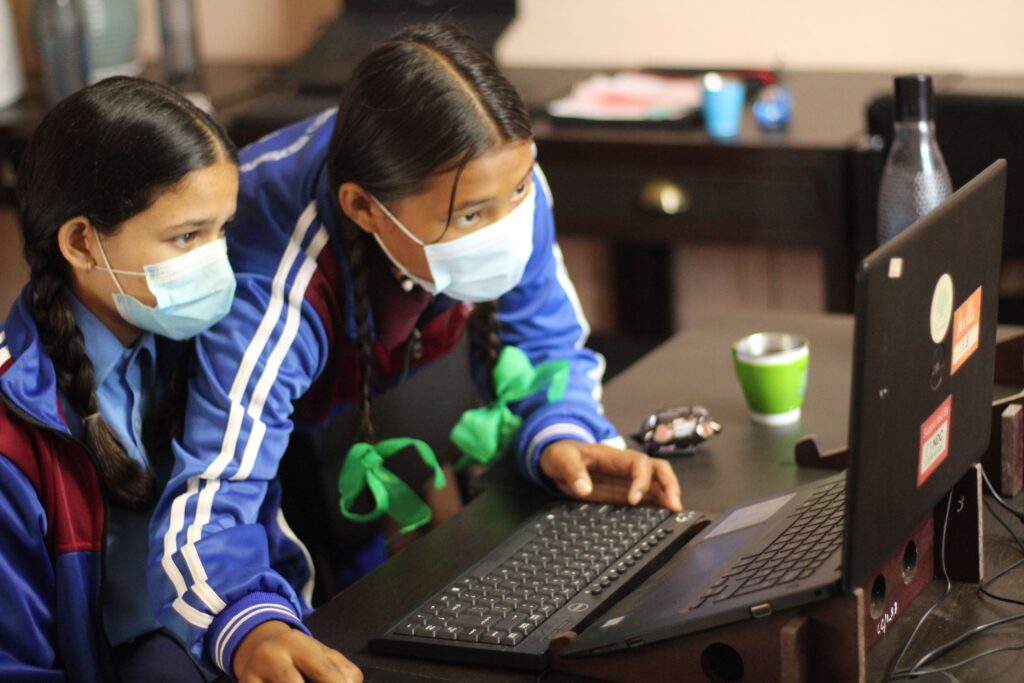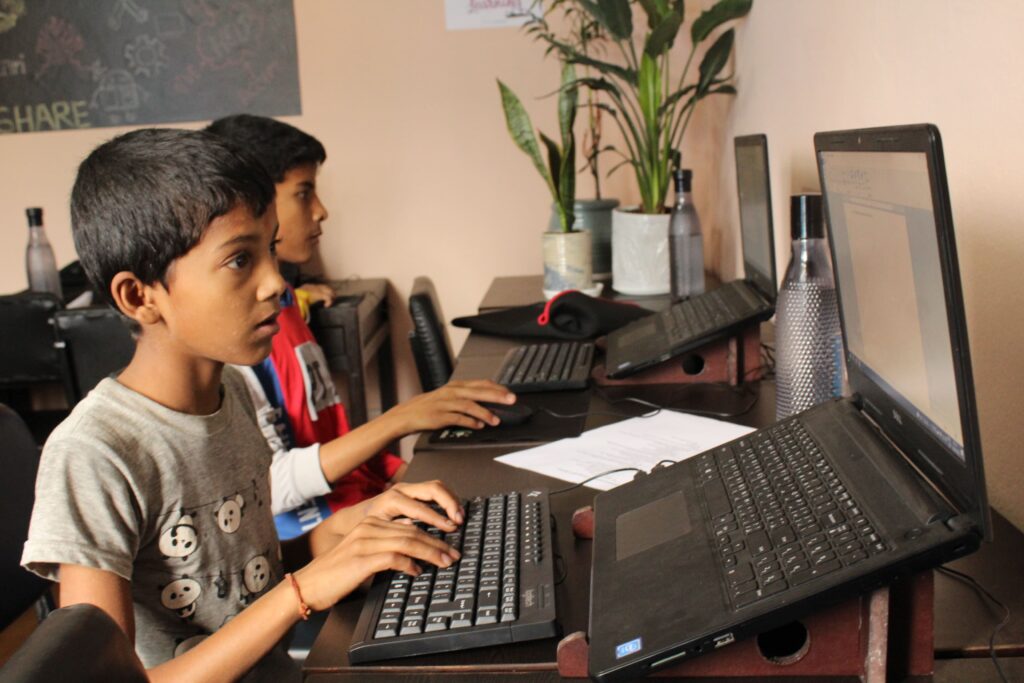Background
Today, in the digital age, many students in public schools in rural parts of Nepal are finding themselves marginalized and excluded from future opportunities in the ICT field because they are digitally illiterate. Because most of these schools don’t have access to basic digital infrastructures like proper computer labs, access to internet, etc., it is difficult to find a skilled and competent computer teacher, even the curriculum is outdated and the classes are not taught in an experiential manner. Students read computer books and pass computer exams without seeing or using a computer in their whole school life.

Interventions needed
Various interventions might be needed at this point:
- Provide each public school with a proper equipped lab ; at least 1 computer/laptop per 2 students.
- Updating the curriculum according to the current trends in digital world.
- Updating the teaching pedagogy and techniques ; switch from teaching books to actually using a computer to learn computer.
- Generating a pool of skilled teachers in Computer and programming.
- Switching from term exams to project based assessments.
Code Chautari
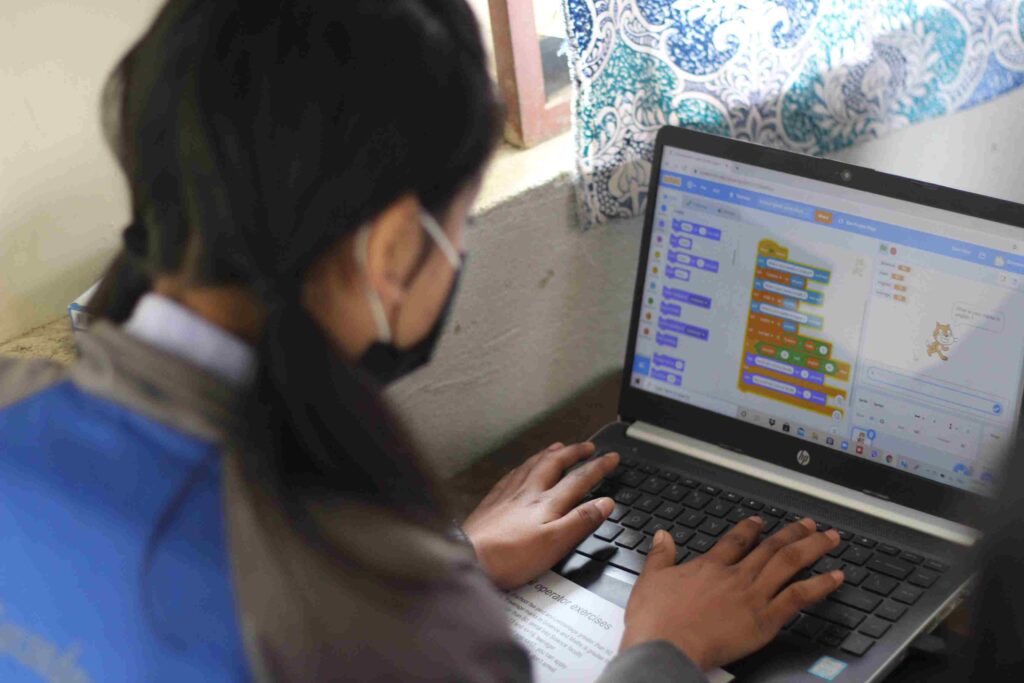
Code Chautari is one of those interventions, an idea that, provided with a quality education on computer literacy and programming, students in public schools could develop the necessary skills empowering them to compete globally.
Code Chautari is an after school program for public schools with a series of connected classes on Computer Literacy and Computational Thinking. Classes will run 5 days a week, with extended classes if necessary. Each class is about an hour long which encompasses PBL (Problem based learning) and hands-on learning approach. Students learn not from books or teachers, but experientially by doing on the computer itself.
Objectives
1. Make kids digitally literate so that they can use digital tools and the internet to get information, knowledge and build other personal skills.
2. Build computational thinking and problem solving through programming/coding as a tool.
Use programming as a tool to:
- Build problem solving skills ○ Empower Self-directed learning
- Build researching skills using digital tools to strengthen and broaden knowledge in any topic or subject
3. Provide exposure to the kids about programming so that they can try and decide for themselves if they see it as a subject/career they want to pursue in the future.
Expected Outcomes
● All the participating students are proficient in using a computer and most important digital tools necessary in getting a related job later.
● Students use the digital skills and knowledge to learn more about topics in other subjects (like doing homework, making reports, doing surveys etc.)
● Students develop self-directed learning habit
● Students learn feedback mechanism
● Students develop computational thinking and problem solving skills and use them in daily lives
● Students have a brief idea of what computer programming is and how to write a computer program
● Students have a rough idea of what kind of things have to be studied in IT related fields if they want to pursue IT field later.
● Teachers are skilled enough to use basic digital tools in teaching as well as administrative tasks
Our Programs
We deliver regular co-curricular classes (after school, in-school or before school model) for Computer Subjects based on the curriculum as prescribed by Curriculum Development Center (CDC), Nepal. We take important skills and knowledge from the curriculum and integrate them into various classes suitable for grade 6 to 11.
Computer Literacy
- The Computer Literacy classes will basically provide students with skills that will help them in higher studies or future careers.
- Students will learn to use the necessary computer tools; use of files and folders, typing, use of a browser, installing software, use of google to research for information, use of different googles tools like Drive, Gmail, translate etc.
Computer Programming
- Students acquire skills and knowledge on the basics of programming focusing on computational thinking.
- Students will develop the disposition of thinking in a logical and algorithmic way through different programming related games.
- Students will build basic understanding of programming concepts by writing actual programs in a visual block-based programming platform called Scratch.
Mobile App Development
Students build upon their basic understanding of programming concepts and learn how to make Android apps using MIT App Inventor and Thunkable platform.
Code Chautari Till Now
In the first round (2020/2021), Code Chautari was implemented in Jana Uddhar Secondary School in Budhanilakantha, Kathmandu, Nepal. 16 students from grade 7 and 8 (male and female ratio maintained to 50:50) graduated from Code Chautari’s year long course on computer literacy and basic programming.
In the second round (2021/2022), NDC Code Chautari collaborated with Dostel Living Learning Center (DLLC) to run Computer Literacy workshops for its 15 resident students; 9 females and 6 males. Most of these students had completed their grade 10 from public schools of Nepal and were pursuing high school in Science, Management , Civil Engineering, Nursing, Food and dairy, Hotel and hospitality, Digital marketing, etc. in Kathmandu under various scholarships.
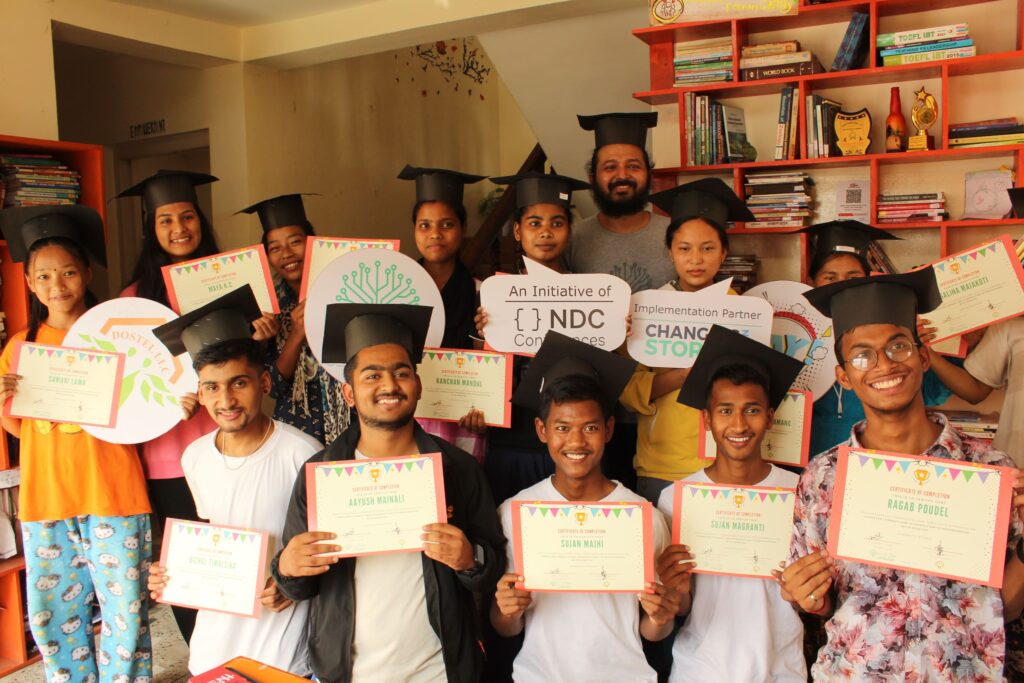
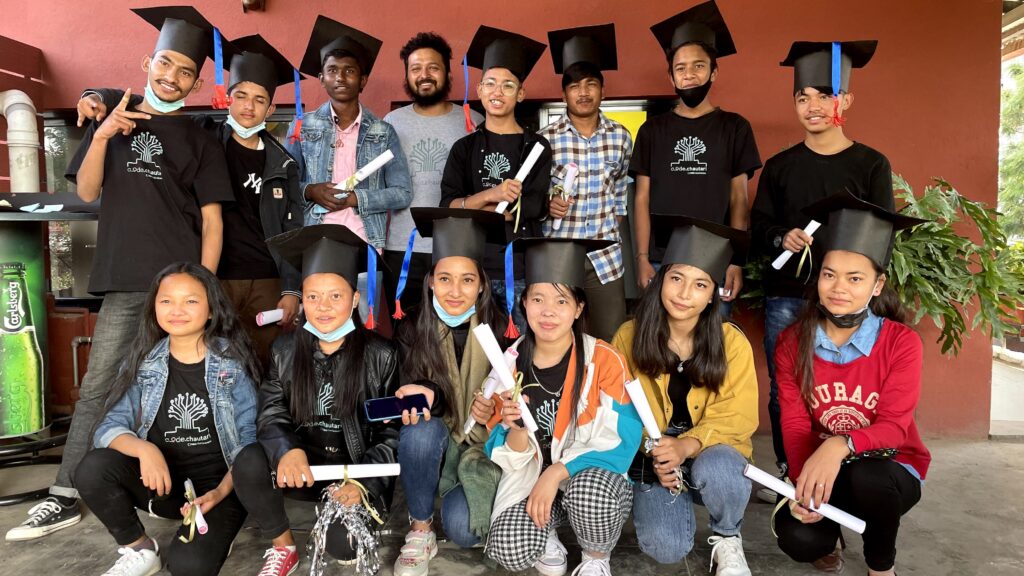
Program 2022/2023
We have currently set up a Code Chautari Learning Center in Tokha ward 2. This learning center primarily targets students of two public schools in the vicinity; Shree Chandeshwari Secondary School and Shree Saraswati Secondary School. We currently have 42 participants from these schools; students of grade 6, 7 and 8 from Chandeshwari School while students of grade 11 from Saraswati School. Among the participants, 65% are female and 35% are male students.
